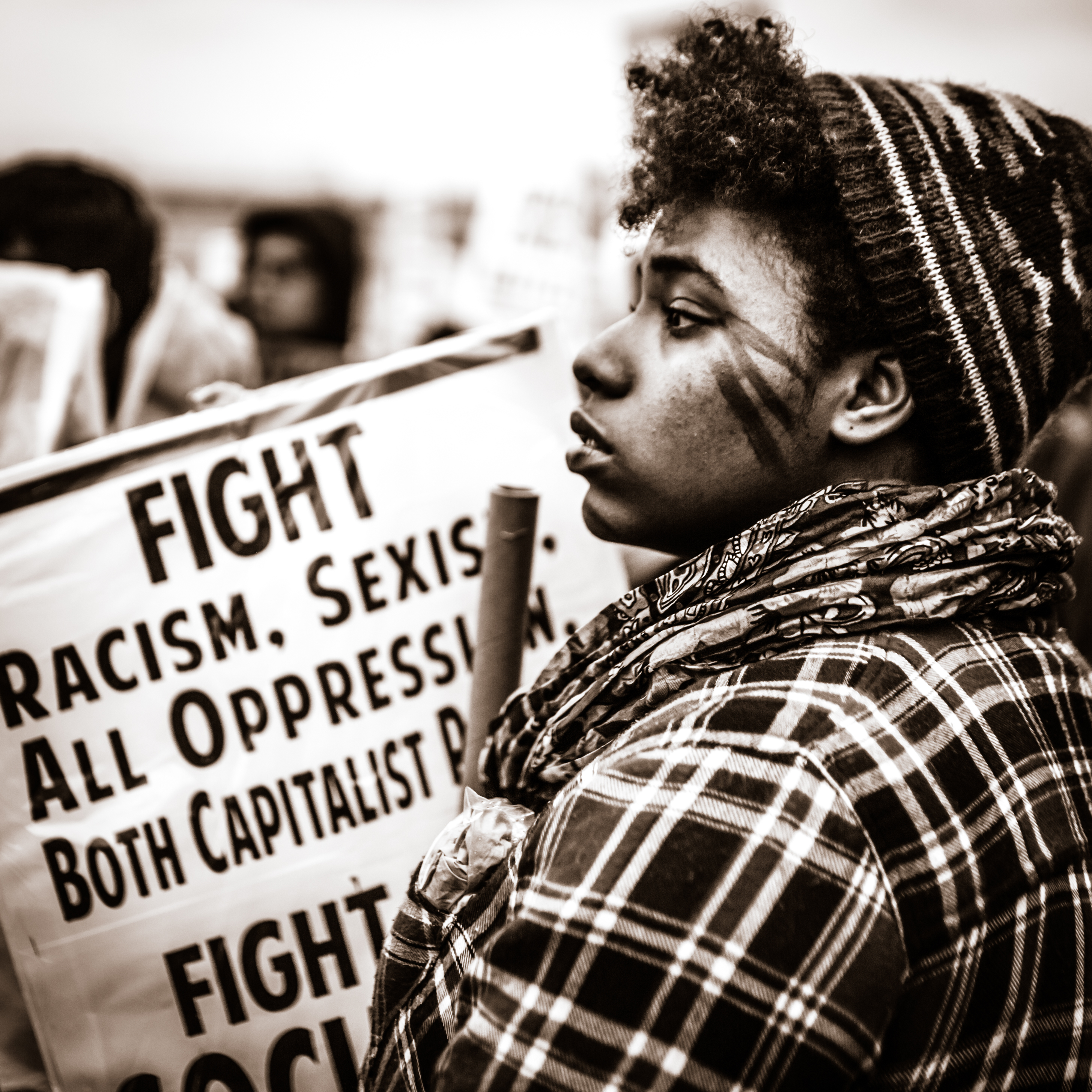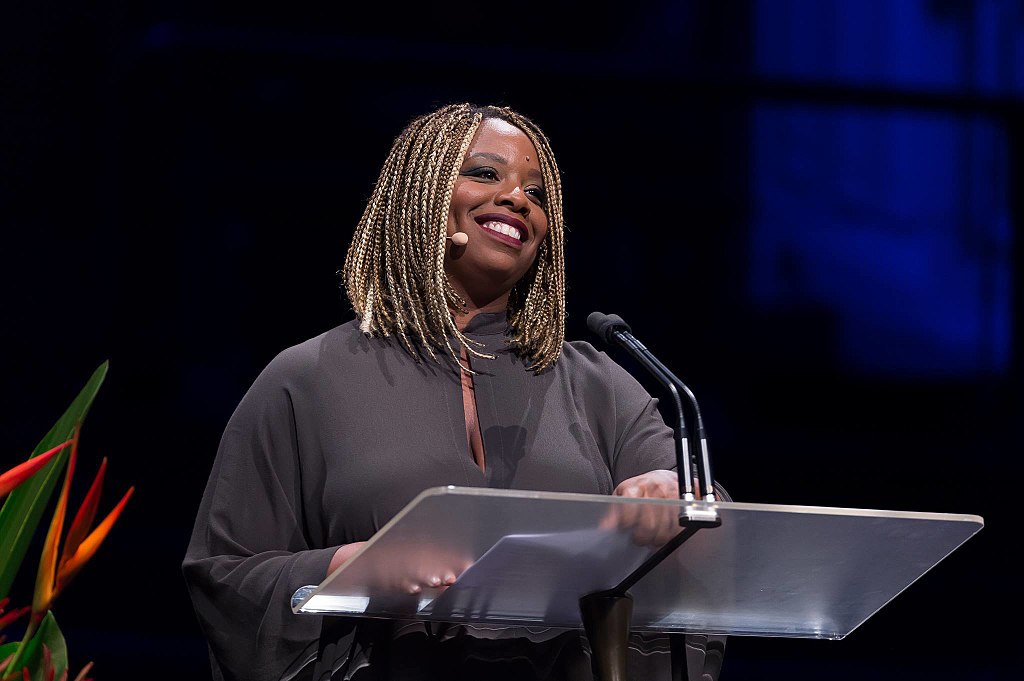Re-Writing Black Gendered Stories

For some years, I’ve written social histories of Black men on death row. The objective is to provide a social context for these men as raced, gendered, and classed subjects, and to describe the worlds in which they circulate and how they are perceived. Black feminism has provided me with the intersectional and patriarchal analytic framework necessary to unpack the gendered experience of Black men, including the complicated co-existence of purchase and affliction. As a scholar, I was prepared to put my Black feminism toolkit to work in the service of deepening understandings of the impacts of racialization on Black life. However, part of me recognized a certain irony, even some frustration, that the same tools I had invested in learning and developing to amplify Black women’s voices, which were often rendered peripheral in academic discussions pertaining to Black men and Black life, were now almost singularly being used to contextualize Black men.
It has taken me some time to fully step into the core of Black feminism and discern that my ambivalence had less to do with whose body was being narrated than the way their story was told, and whether there was room in the frame for the plurality of Black experiences. My longing for accounts of Black women’s lives had not dissipated, but I grasped the need for models of how various Black gendered stories can be told in order to move beyond the patriarchal template in which Black men’s stories unconsciously become the representative narrative. Patriarchal orientations permeate our writing through competitive accounts of gendered racism that slide into either/or, of who has it worse, who is more privileged, and why. My desire is for models of how to write Black people’s stories into encounters and conversations where their hurts and yearnings are heard and felt, and their frictions and possibilities are related. Over the past few years, I found some long-awaited examples.
Several contemporary Black autobiographical writings have exemplified new ways to animate Black gendered life. Ta-Nehisi Coates’s Between the World and Me, written as a letter to his young son, gives a heartfelt voice to the sobering perils of Black boys becoming Black men, anticipating what his son might experience. Its epistolary form personalizes the narrative, and Coates shares not just the facts of his life, but also the emotions of how it feels as a Black man to navigate the almost inextricable urban, racial webbing in which he came up. His turn towards embodiment presents a critical method he has credited to the instruction of women and feminist writers and mentors. What remains uncharted is how to fully bring Black women into his story. Yes, there are powerful Black women in the book, but he remains the protagonist.
Recent memoirs by Black women have shown another way. They intricately write Black men into their stories and exhibit a robust style of storytelling that speaks to Blackness in its complexity. Released this past January, Patrisse Khan-Cullors’s memoir When They Call you A Terrorist, tells her story through her relationships with others. She weaves together her personal story with that of the founding of the Black Lives Matter movement; and, in the midst of the two, she recounts the story of her now deceased biological father Gabriel, who lived his life in and out of prison. She dedicates a chapter to the fullness of their relationship and to the man who she says, “spent every moment with me telling me how my black life mattered.” Khan-Cullors trades the omnipresent story of Black men’s incarceration and death for how her father lived outside those walls, and how he sat, in elation and tears, with himself and specifically her.
Khan-Cullors upsets patriarchal narratives that rely principally on structures and metrics to make sense of Black life by writing about the ways she and her father relate to one another and how their individual histories bear on their lives differently. She writes not of a valiant patriarch, but of a gentle man whose self-medicated spirit and body sag even when not donning a prison jumpsuit. Similar to Coates, she moves affective claims through the breath and bodies of her subject and in one gently climactic moment, details how she holds him as the two withstand the pain of failure, absence, and disappointment of their lives and relationship. The pages fill with their inner struggles as father and daughter, man and woman, addict and activist, spirit and spirit, deep in revelation. Following the penmanship of women like her collaborator Asha Bandele, and the tradition of Black feminism, Khan-Cullors holds her father’s story close and uses emotion and physicality to illustrate what is possible in conversations about gendered Blackness by witnessing them in the same frame.

Neither her father’s presence nor his story overwhelms her or hers. Khan-Cullors does not allow it, making room for them both. She foregrounds intimate moments where their asymmetries lend themselves to the complexity of their respective and shared lives rather than comparing them. Writing about her forlorn and ashamed father, whose long term drug addiction has begot him another prison sentence, she writes, “I will not be to him what the world has been to him. I will not throw him away. I will not say he has nothing to offer.” Khan-Cullors rejects the racial over-determination of her Black father by embodying and practicing the non-judgmental ethos she explicitly cites as her father’s teaching. She says, “If he matters to me at all then he has to matter to me at every moment.” This is the offer she narrates as also extending from the queer and love-directed community she has cultivated, grown within, and mobilized over the course of her life. This is also the offer of Audre Lorde’s and bell hooks’s praxis that she cites as setting her journey into motion. Through tone and focus we hear a commitment to the intangibles and invisibles—acceptance, love, and imagining—at stake in the ways she writes her and her father’s story together.
Jesmyn Ward’s Men We Reaped provides another example. Her memoir is structured around the deaths and losses of five young Black men in her life, including her beloved younger brother, Joshua. Her book is a coming-of-age story of growing up poor and Black in Mississippi. She tells the complexity of this reality through her parents’ story and the lives of her siblings and friends, detailing the ways Black women’s and men’s lives were scripted in distinctly gendered ways, strangling them from one generation to the next. Ward communicates how from an early age she understood the gendered implications of patriarchal forces on her mother and grandmother, who were left by their husbands and raised children alone. She identified this pattern in women’s lives and as the other side of the coin of Black men’s experiences. “On the cusp of adulthood,” she writes, “my brother and I understood what it meant to be a woman: working, dour, full of worry. What it meant to be a man: resentful, angry, wanting life to be everything but what it was.” With this consciousness, she highlights how the gendered weight of racism drives Black people, young and old, down different trajectories. She then observes her brother and the other young Black men of her hometown as their lives move apart, end, and sometimes come back together. No story is truly centered; no one experience of Blackness privileged over another. Ward’s telling stays in the painful entanglement of their shared humanity.
Like the two other authors, Ward vivifies her narrative through the particulars of physical Blackness of her friends and family. She lingers on the plurality of bodies and experiences encompassed within the confines of structural racism in her Mississippi reality. She writes from the all too common voice of a Black woman who has lost beloved Black men, and whose pains preceded and extend beyond them. By painting a picture of the intricate matrix of the emotional lives of Black people, she conveys how our sorrows and joys are most often clearly and inextricably linked. When it comes to Black life, Ward’s memoir, like Khan-Cullors’s, shows how in some cases Black women can poignantly tell their stories through encounters and relationships with Black men.
These three writers courageously show us other ways of writing the multiplicity and interrelationship of Black life. The overlaps in their Black feminist inspired methods suggest how holding Black men, Black women, and all gender variant Black people within the same frame, including their bodies, emotions, and encounters, forms part of an experimental and necessary project to un-write the patriarchal constraints of Black life.
Other writers contribute to this undertaking. Claudia Rankine’s and Kiese Laymon’s respective works creatively recount gendered Black life from an intersectional vantage. A more recent model from the diaspora is Bayo Akomolafe’s These Wilds Beyond Our Fences. Like Coates, Akomolafe drafts a letter, this time to his young daughter, inviting her into his innermost meanderings where he offers his intellectual and spiritual inquiries as loving guideposts for her to sustain a life of breadth and meaning. Akomolafe’s invitation to his daughter, echoed across the other writings mentioned here, is a call to inhabit and to write a new ecology of Black life that resists the unnecessary dissecting of its parts while remembering its diverse relationships and graces. “Entanglement,” Akomolafe writes to Alethea, “is not a hive mind or an effacement of its parts; it’s instead, as Trinh Minh-ha reminds us again, noticing that we are inescapably interconnected—and this is tragedy and hope.”
Copyright © AAIHS. May not be reprinted without permission.